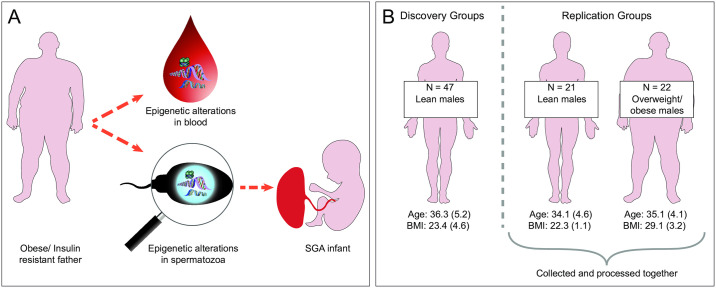Fig 1. Intergenerational epigenetic inheritance via spermatozoa and overview of study groups.
(A) Mechanism for how acquired paternal phenotypes could alter offspring physiology via epigenetic alterations to a man’s spermatozoa. Epidemiological studies suggest that some acquired paternal traits, including obesity and insulin resistance, are associated with an increased risk of fathering small for gestational age (SGA) offspring [18, 19, 69]. Studies in non-human mammals suggest that such associations could be mediated by DNA methylation alterations in spermatozoa that induce metabolic reprogramming in the developing foetus [12]. (B) Overview of study groups. The discovery group included 47 lean males (BMI 19–25 kg/m2) and the replication groups included 21 lean males (BMI 19–25 kg/m2) and 22 overweight/obese males (BMI >26 kg/m2; ‘the obesity group’). Age (years) and BMI (kg/m2) are expressed as mean (SD). SGA: small for gestational age. SD: standard deviation.

